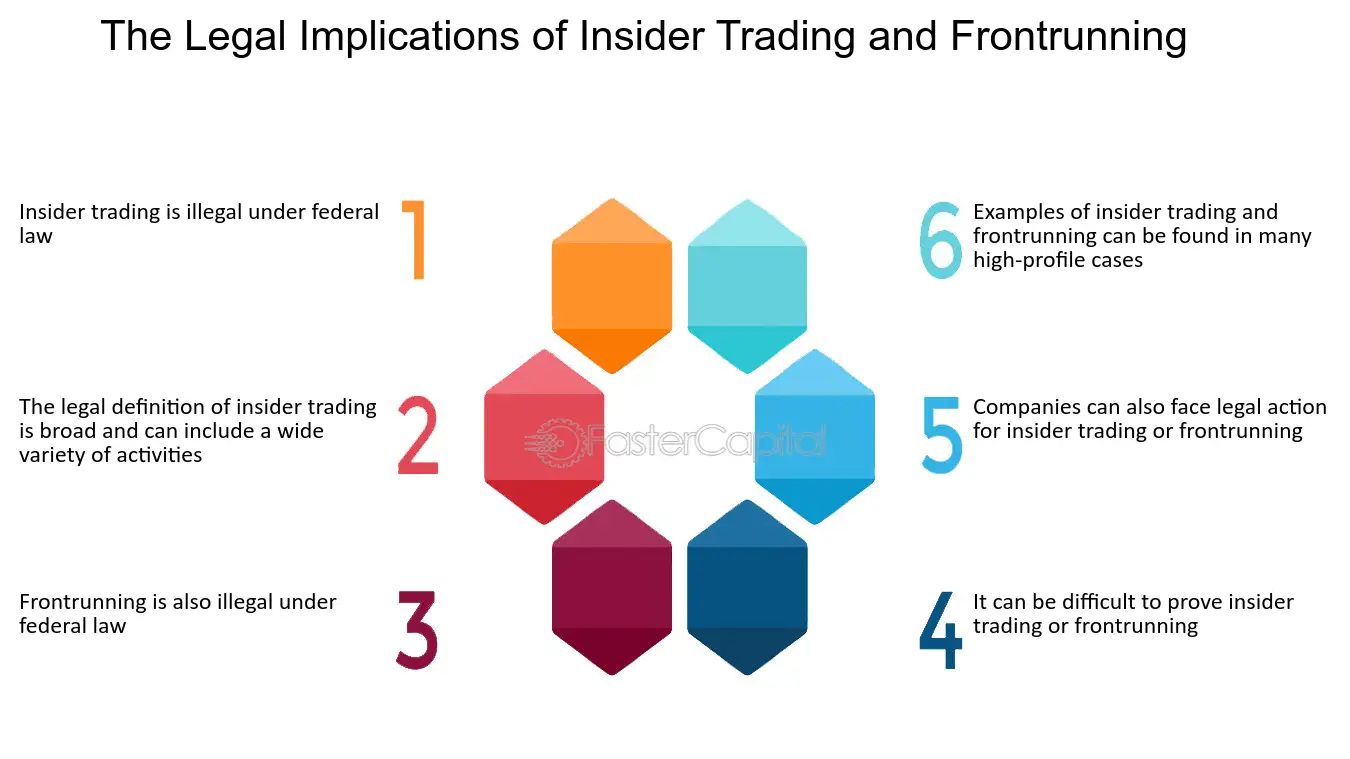Did you know that insider trading can sometimes feel like playing poker with a marked deck? In this article, we explore the critical distinctions between insider trading and regular trading strategies. You'll learn what constitutes insider trading, the legal and ethical ramifications, and how information asymmetry plays a pivotal role. We also delve into the risks associated with insider trades compared to standard market strategies, as well as the influence of timing and motives behind each approach. Additionally, we examine how regulatory agencies detect these activities and the implications for market integrity. Join us at DayTradingBusiness as we dissect these complex topics to enhance your trading knowledge.
What is insider trading and how does it differ from regular trading?
Insider trading involves buying or selling stocks based on non-public, material information, giving insiders an unfair advantage. Regular trading relies on publicly available data, market trends, and analysis, making it fair and transparent. The key difference is that insider trading uses confidential info, while regular trading depends on open information and market signals.
How do illegal insider trades compare to legal market strategies?
Illegal insider trading involves using non-public, material information to make quick profits, often violating securities laws. Legal market strategies rely on publicly available data, thorough analysis, and risk management without breaching regulations. While insider trading can yield instant gains, it risks severe penalties and damages reputation. Regular strategies focus on long-term growth through research, diversification, and disciplined investing. Insider trading is illegal and unethical; legal strategies follow transparency and compliance.
What are the main risks associated with insider trading versus normal trading?
Insider trading risks include legal penalties, hefty fines, and jail time if caught, because it involves using non-public information. It also destroys reputation and trust, leading to potential career damage. Regular trading risks focus on market volatility, losses from poor timing, and emotional decision-making, but it’s legal and based on public info. Insider trading’s main risk is legal action, while normal trading’s main risks are financial loss and market unpredictability.
How does information asymmetry affect insider trading and regular trading?
Information asymmetry gives insiders an unfair advantage in trading, allowing them to buy or sell based on non-public info. This skews the market because insiders profit at the expense of regular traders who only have access to public data. Regular traders rely on publicly available information, making their trades less predictable and more risky. Insider trading, fueled by privileged info, disrupts market fairness and can lead to manipulation, reducing overall trust.
What legal consequences do insiders face compared to standard traders?

Insiders face criminal charges, hefty fines, and prison time for illegal trading based on non-public information. They can also be sued civilly, forced to forfeit profits, and barred from trading. Standard traders, following legal strategies, aren’t subject to these severe penalties.
How do trading strategies differ for insiders with confidential information?
Insiders with confidential information can make trades based on non-public data, giving them an unfair advantage. Their strategies often involve timing trades around undisclosed earnings, mergers, or regulatory decisions. Unlike regular traders who rely on public info and analysis, insiders capitalize on privileged knowledge, risking legal penalties if caught. Their approach is more opportunistic, often secretive, aiming for quick gains before the information becomes public.
Can regular traders use similar techniques as insiders?
Regular traders can't legally use insider trading techniques because insider trading involves using non-public, material information, which is illegal. While they can analyze public data, market trends, and technical signals, they can't access or act on confidential info insiders have. Inside information gives insiders an unfair advantage, something regular traders aren’t allowed to exploit. So, their strategies are based on publicly available data, unlike insiders who leverage private info.
What role does market regulation play in preventing insider trading?
Market regulation enforces rules that prevent insider trading by monitoring suspicious activity, enforcing disclosure requirements, and penalizing illegal trades. It creates a legal framework that deters insiders from using confidential information for personal gain. Regulatory bodies like the SEC investigate and prosecute violations, maintaining fair market conditions. Without regulation, insider trading could flourish, undermining investor trust and market integrity.
How do regulatory agencies detect insider trading versus regular trading activities?
Regulatory agencies detect insider trading by analyzing suspicious trading patterns, such as unusual volume spikes before major news, and cross-referencing trade data with confidential information leaks. They use surveillance systems to flag trades made by individuals with insider connections or during sensitive periods. Investigators also look for abnormal timing, rapid trades, and discrepancies between public info and trading behavior. For example, a sudden surge in stock purchases right before earnings announcements often signals insider activity, unlike regular trading, which aligns with market trends and publicly available info.
What are the ethical differences between insider trading and normal trading?
Insider trading involves using non-public, material information for personal gain, betraying trust and violating securities laws. Regular trading relies on public information and market analysis without breaching confidentiality or legal boundaries. Ethically, insider trading is dishonest and unfair, giving insiders an unfair advantage, while normal trading respects transparency and equal access to information.
How does insider trading impact overall market fairness?
Insider trading damages market fairness by giving insiders an unfair advantage, allowing them to profit from non-public information. It erodes investor trust, discourages participation, and creates an uneven playing field. When some traders have access to secret info, regular investors feel disadvantaged, which undermines confidence in the market’s integrity.
Learn about Impact of Insider Trading Scandals on Market Confidence
What are the typical motives behind insider trading versus legitimate trading?
Insider trading is driven by personal gain based on non-public information, aiming for quick profits or to manipulate the market. Legitimate trading relies on public data, market analysis, and strategic planning to make informed decisions without exploiting confidential info. While insider trading seeks an unfair advantage, legitimate traders follow transparency and regulatory rules to ensure fair market practices.
How does timing influence both insider trading and regular trading strategies?

Timing is crucial in both insider trading and regular trading strategies. Insider trading relies on having early, non-public information, allowing quick moves before the market reacts. Regular traders depend on public data and technical analysis, making timing about reacting to market signals. In insider trading, timing gives the advantage of executing trades before news becomes public, maximizing profits or minimizing losses. For regular traders, timing involves entering or exiting based on chart patterns, news releases, or economic reports, often with less certainty. Overall, timing determines the speed and advantage—insiders capitalize on secret info, while regular traders time their moves through analysis and market cues.
Learn about How Do Institutional Traders Influence Day Trading Strategies?
What are the signs or indicators of illegal insider trading?
Signs of illegal insider trading include suspiciously early knowledge of confidential information, sudden stock moves before news releases, unusual trading volumes, and trades made just before significant announcements. Traders acting on non-public info often execute large, timed trades that don’t match typical market patterns. Watch for employees or insiders who leverage confidential company info for quick profits, especially if their trades spike around corporate events. These behaviors signal potential illegal insider trading, which differs from regular, strategic trading based on public info.
How do disclosure requirements differ for insiders and regular traders?
Insiders must disclose their trades publicly, often within days, to prevent market manipulation, while regular traders aren’t required to reveal their transactions. Insider disclosures are regulated and monitored, whereas regular traders operate without mandatory public reporting. Insiders’ trades can influence stock prices due to their privileged information, unlike regular traders who trade based on public data.
What are the consequences for market integrity if insider trading occurs?
Insider trading damages market integrity by eroding trust and fairness. It creates an uneven playing field, disadvantaging regular investors. This can lead to decreased market confidence, lower liquidity, and increased volatility. Over time, it undermines the credibility of financial markets and discourages legitimate investment.
Conclusion about How Insider Trading Differs from Regular Trading Strategies
In summary, understanding the distinctions between insider trading and regular trading strategies is crucial for anyone involved in the financial markets. Insider trading operates under a different set of rules, with significant legal and ethical implications that can impact market integrity. While regular traders can adopt sound strategies, they must navigate regulations and market dynamics without the advantage of confidential information. At DayTradingBusiness, we emphasize the importance of ethical trading practices and staying informed about market regulations to ensure a fair trading environment for all participants.
Learn about How to Protect Yourself from Insider Trading Risks